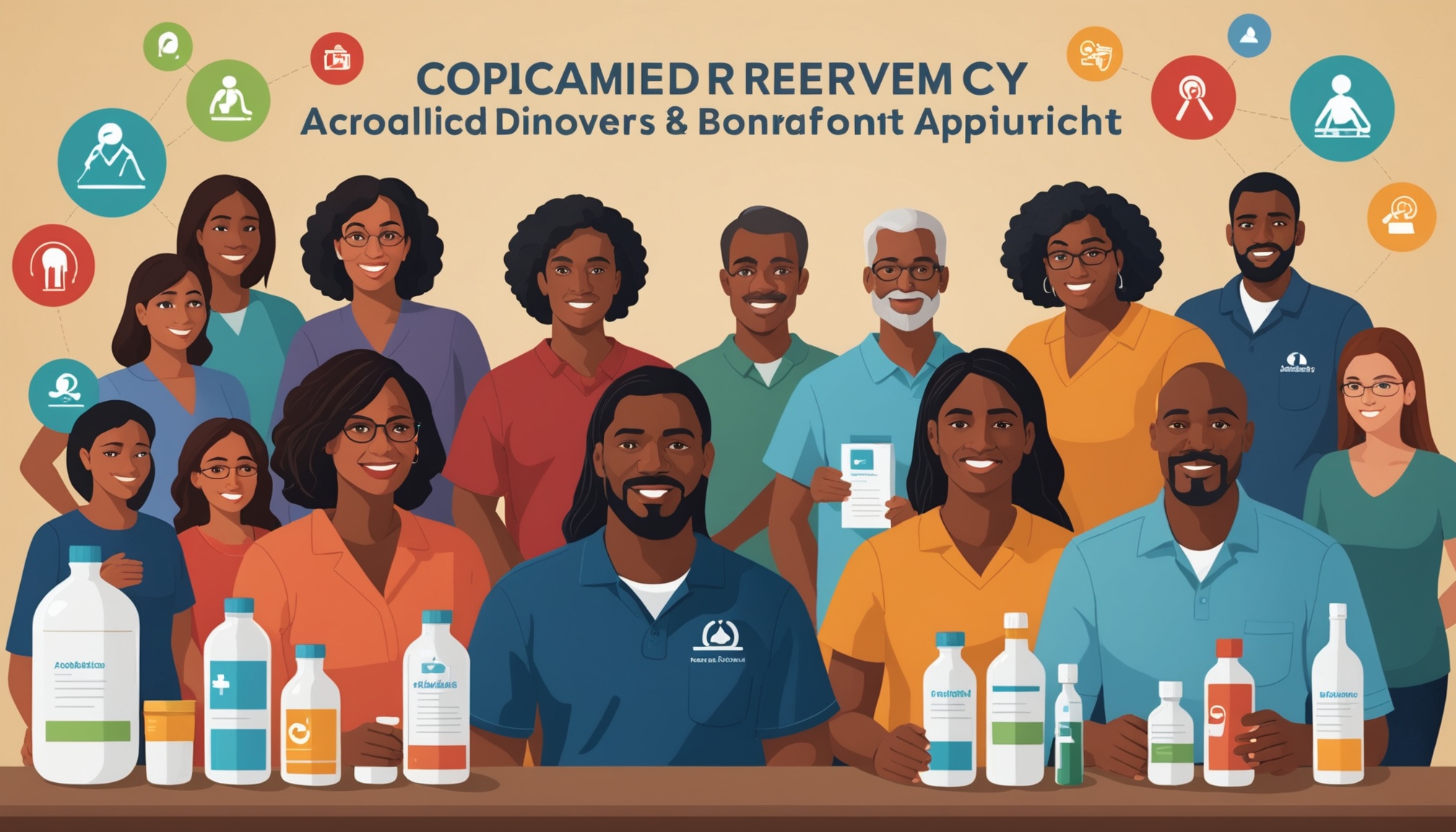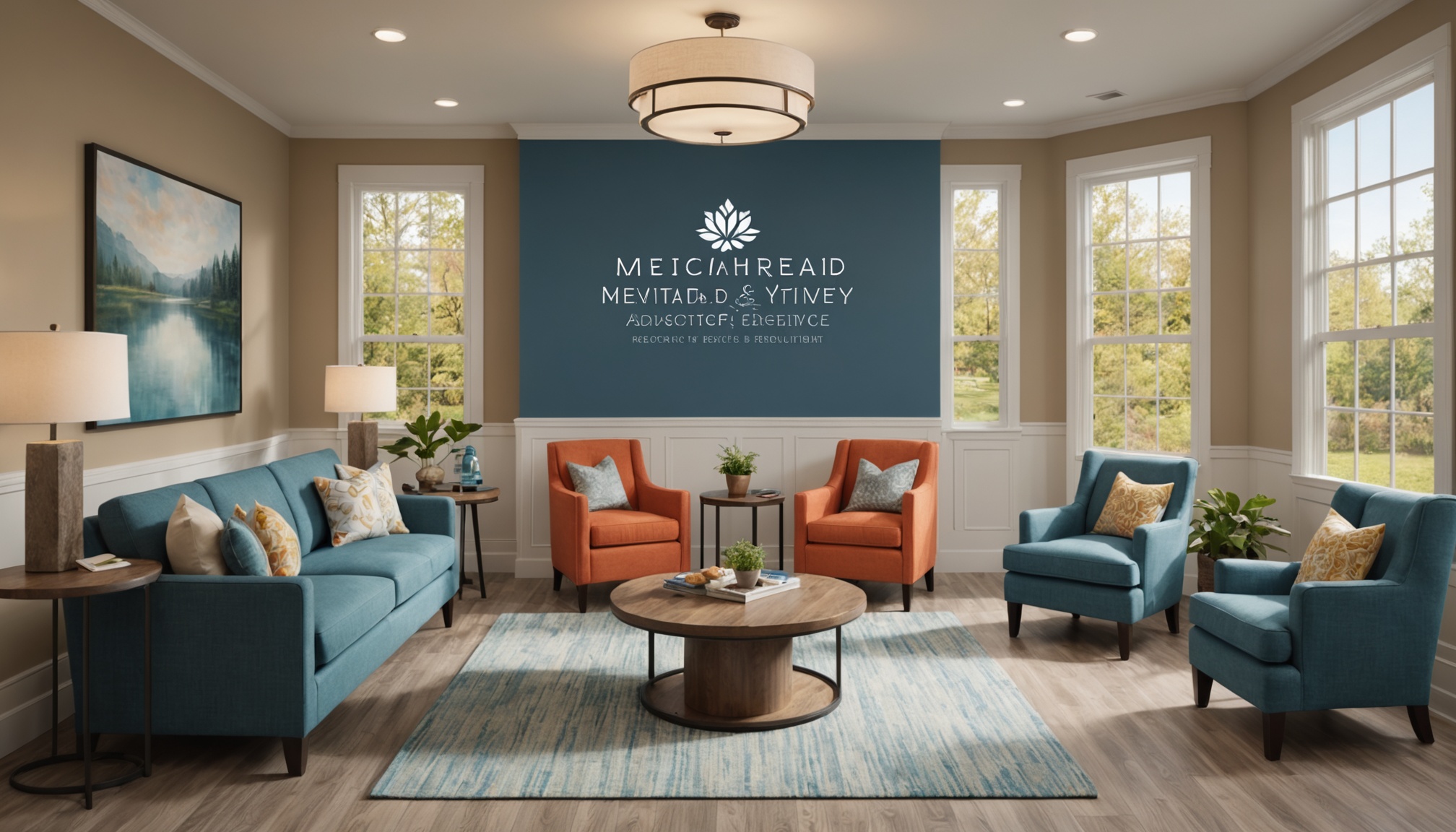
Understanding Medicaid Coverage
Overview of Medicaid
Medicaid is a state and federal program designed to provide health care services to individuals and families with limited income. It plays an essential role in the landscape of healthcare by offering coverage to those who may not afford it otherwise. As part of the 2010 Affordable Care Act, Medicaid coverage includes addiction treatment for drug and alcohol misuse, which is a vital resource for many seeking recovery from substance use disorders. In most states, Medicaid recipients do not have co-payments for addiction treatment, making it more accessible (Addiction Center).
Medicaid Eligibility Criteria
Eligibility for Medicaid varies by state, but certain common criteria apply. Typically, individuals must fall below a specific income level or be recipients of Supplemental Security Income to qualify. The following table provides a general outline of Medicaid eligibility criteria:
| Eligibility Criteria | Details |
|---|---|
| Income Level | Generally, must earn less than 133% of the Federal Poverty Level (FPL) (Addiction Center). |
| Supplemental Security Income | Individuals receiving SSI often automatically qualify for Medicaid coverage. |
| State Variations | Each state may have different income brackets, so checking local guidelines is crucial. |
If you believe you fall within these criteria, it is recommended that you assess your eligibility and explore available rehab services that take medicaid. Access to Medicaid-approved treatment options is critical for affordable recovery solutions.
Understanding your options with Medicaid can lead you towards finding suitable addiction treatment centers that accept medicaid, ensuring a pathway to recovery that meets your financial needs.
Importance of Medicaid in Addiction Treatment
Medicaid and Substance Use Disorder Treatment
Medicaid plays a crucial role in financing addiction treatment in the United States. It often covers a range of services for alcohol rehab and drug misuse treatment, making it essential for those seeking recovery. In fact, over 71 million Americans were enrolled in Medicaid as of November 2024, and this number continues to grow with children’s health insurance program (CHIP) enrollees included (American Addiction Centers).
A notable development came in 2015 when the Obama administration issued guidance for states to potentially cover inpatient rehab and residential treatment through Medicaid. This initiative aimed to ensure that individuals have access to a comprehensive continuum of care targeting substance use disorders. With more states adopting these measures, Medicaid coverage can significantly lessen the financial burden associated with rehabilitation.
Medicaid’s Role in Rehab Financing
Medicaid not only covers direct treatment costs but also facilitates access to vital services such as therapy and counseling. State-funded detox and rehab programs generally accept Medicaid, offering essential services at lower costs than private facilities (American Addiction Centers). In 2020, the federal government mandated that all states provide Medicaid coverage for addiction treatment medications, commonly known as medication-assisted treatment (MAT), specifically for opioid use disorders. This requirement ensures that medications, counseling, and behavioral therapy are accessible for individuals battling addiction (American Addiction Centers).
Understanding the financial support that Medicaid offers can help you navigate the addiction treatment landscape more effectively. If you are considering services, searching for addiction treatment centers that accept Medicaid is a critical first step in your recovery journey. For additional resources on rehab options, you may want to explore rehab programs that take medicaid and drug rehab that accepts medicaid to ensure your treatment fits within your financial capacity.
Accessing Medicaid-Approved Treatment Centers
Finding the right addiction treatment centers that accept Medicaid is crucial for many individuals and families seeking affordable recovery options. With the right approach, you can identify facilities that meet your needs and preferences.
Finding Medicaid-Accepted Treatment Facilities
Medicaid serves as a vital resource for accessing addiction treatment. Many facilities across the country are authorized to accept Medicaid for various programs, including detox, outpatient rehab, and medication-assisted treatment (MAT) (Addiction Center). To find a treatment center that accepts your coverage, consider the following steps:
-
Research Directories: Utilize online directories that specialize in listing rehab programs that take Medicaid. These resources often categorize facilities based on location and services offered.
-
Contact Your Medicaid Provider: Reach out directly to your Medicaid provider to inquire about covered facilities and programs. They can provide up-to-date information about treatment centers in your area.
-
Consult Local Addiction Services: Local health departments or community mental health centers may also have information on Medicaid-accepted treatment options.
-
Ask for Recommendations: Seek feedback from healthcare professionals, friends, or support groups about their experiences with specific treatment centers.
Accreditation Standards for Treatment Centers
When choosing a treatment facility, accreditation is a crucial aspect that reflects the quality of care and services provided. Accredited centers follow specific standards set by organizations such as the Commission on Accreditation of Rehabilitation Facilities (CARF) or The Joint Commission. Here are some key points to consider regarding accreditation:
| Accreditation Standard | Description |
|---|---|
| Quality of Care | Accredited facilities have demonstrated a commitment to providing effective and safe treatment for substance use disorders. |
| Facility Compliance | These centers adhere to industry standards regarding patient care, staff qualifications, and treatment approaches. |
| Patient Rights | Accredited treatment centers uphold the rights of patients, ensuring they receive respectful and confidential care. |
| Continuum of Care | These facilities typically offer a range of services, ensuring a smooth transition through different stages of recovery, from detox to outpatient care. |
Choosing an accredited treatment center ensures that you receive comprehensive and reliable care. Programs covered by Medicaid often include inpatient rehab, outpatient treatment, medication-assisted treatment, and ongoing support services (American Addiction Centers).
By following these guidelines, you can access the right resources and support, enabling you to make informed decisions about your recovery journey. For more information about the services covered by Medicaid, check out our resources on substance use treatment covered by Medicaid.
Medicaid Coverage for Addiction Recovery Services
Accessing addiction recovery services can be challenging, especially regarding costs. Medicaid is an essential resource that provides coverage for various treatment options, helping you and your family on the path to recovery. In this section, we’ll cover the specifics of Medicaid coverage for both inpatient and outpatient treatment options.
Inpatient Treatment Coverage
Medicaid covers inpatient rehab, which offers crucial support for individuals seeking intensive treatment for substance use disorders. This coverage typically allows for stays of up to 90 days or more, ensuring that you receive the necessary care during critical recovery periods. The availability of inpatient programs can be vital for individuals needing a structured environment to overcome their addiction challenges (American Addiction Centers).
| Coverage Type | Description | Duration |
|---|---|---|
| Inpatient Treatment | Intensive rehabilitation services | Up to 90 days or more |
| Medicaid Coverage | Financial support for necessary care | As determined by individual needs |
For details on facilities that accept Medicaid, explore our article on rehab programs that take medicaid.
Outpatient Treatment Coverage
Medicaid also ensures coverage for outpatient drug rehabilitation. This support is crucial for individuals who may not require a residential stay but need continued assistance in their recovery process. Outpatient care allows for flexibility, enabling you to engage in treatment while maintaining daily responsibilities such as work or family.
Outpatient programs under Medicaid can extend over a year, providing individuals the ongoing support necessary for long-term recovery (American Addiction Centers).
| Coverage Type | Description | Duration |
|---|---|---|
| Outpatient Treatment | Flexible treatment options | Up to 1 year or more |
| Medicaid Coverage | Financial support for continuing care | Based on individual needs |
If you’re looking for outpatient options, check out our article on outpatient rehab that takes medicaid.
With these options available under Medicaid coverage, you can focus on what truly matters—your recovery journey. Make sure to inquire about specific programs and the services they offer to find the best fit for you and your needs.
Choosing Vital Health for Medicaid-Approved Services
Selecting the right addiction treatment center is vital for your recovery journey. Vital Health specializes in Medicaid-approved services, ensuring affordable access to essential treatment for you and your family.
Vital Health’s Approach to Treatment
At Vital Health, the focus is on comprehensive and individualized care. The approach is designed to address the unique needs of each client, recognizing that every recovery journey is different. Vital Health’s team of professionals employs evidence-based practices and integrates various modalities to enhance the effectiveness of the treatment process. This includes:
- Individual Counseling: Tailored sessions that meet your specific challenges and goals.
- Group Therapy: Facilitated discussions that promote community support and shared experiences.
- Medication-Assisted Treatment (MAT): Combining behavioral therapy with medications for effective recovery from substance use disorders. For more information, see our section on medication assisted treatment that accepts medicaid.
Their evidence-based strategies align with the best practices in addiction treatment, making them a leading choice among addiction treatment centers that accept medicaid.
Benefits of Choosing Vital Health
Choosing Vital Health provides several advantages that can enhance your recovery experience:
| Benefit | Description |
|---|---|
| Medicaid Acceptance | Vital Health is certified to accept Medicaid, eliminating financial barriers to getting care. You can easily access services like intensive outpatient programs that accept medicaid without worrying about out-of-pocket expenses. |
| Comprehensive Care | The services cover a continuum of care including detox programs that accept medicaid, inpatient rehabilitation, and aftercare programs, ensuring you receive consistent support throughout your recovery. |
| Qualified Professionals | A dedicated team of therapists, counselors, and medical staff provide expert support tailored to your personal needs, fostering a safe and nurturing environment. |
| Flexible Treatment Options | Vital Health offers various programs, including partial hospitalization programs that take medicaid and outpatient options to fit your lifestyle and recovery goals. |
| Holistic Approach | Emphasizes both physical and psychological aspects of recovery, ensuring a well-rounded healing process. This includes access to family therapy for addiction that accepts medicaid. |
With the commitment to providing quality, affordable, and holistic care, choosing Vital Health for your addiction treatment needs can be a significant step toward a healthier future. By leveraging their Medicaid-approved services, you can focus on recovery without the stress of financial strain. Visit our more detailed services page to learn about the programs and support available to you.
Personalized Care and Recovery Process
Finding the right support for overcoming addiction is essential. Personalized care, tailored to your unique needs, can significantly enhance your recovery journey. This section highlights the importance of individualized treatment plans and the continuum of care support available to you.
Individualized Treatment Plans
Every person has a unique journey with addiction. That’s why treatment plans must be customized to fit your specific situation. When you choose a treatment center that accepts Medicaid, like Vital Health, they focus on creating individualized plans based on your specific needs and goals. These plans may include various therapies, counseling sessions, and medication-assisted treatment (MAT) options such as Suboxone and Vivitrol to aid in your recovery from alcohol and opioid addiction.
A well-structured treatment plan takes into account various factors like:
- Substance type: Whether it is alcohol, opioids, or stimulants, your plan will adapt.
- Treatment preferences: Incorporating your preferred methods, whether outpatient or inpatient care.
- Personal goals: Addressing your own motivations for recovery ensures that you are more engaged in the process.
Continuum of Care Support
In addiction recovery, continuity of care is key. This means that after your initial treatment, ongoing support services continue to reinforce your progress. Medicaid covers a variety of services vital to maintaining your recovery, including:
- Outpatient Programs: Regular counseling and therapy sessions that fit into your daily life, helping you stay on track.
- Aftercare Programs: These include support groups and relapse prevention programs to help you manage potential triggers and maintain sobriety.
- Case Management Services: Coordinating additional services such as housing and job placement to aid in a smooth transition back into daily life.
By selecting a facility with a strong continuum of care, you ensure that your support doesn’t end after your treatment phase. For more about the available services under Medicaid, see our guide on substance use treatment covered by Medicaid.
In summary, focusing on a personalized approach allows you to harness the resources available through Medicaid to create a sustainable, actionable recovery path tailored just for you. With a dedicated team and tailored plan in place, you can embark on your journey toward healing with confidence.







